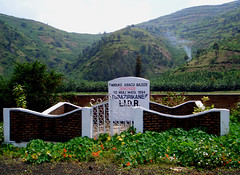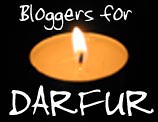Some thoughts on the retreat, which may add to the frustration for those who could not be with us in Kibuye.
Personally, I found it a very stimulating, rewarding experience, and I felt very privileged to be in such interesting company amidst so much natural beauty, not to mention troubling history, complex present and impressive, moving hopes for the future. I was also intrigued to learn more about the origins of Never Again from some of the people involved in its continuing evolution.
I did struggle at the outset to accept the open-ended approach, wishing for more introduction, framing, focus and direction to our discussions. But everyone arrived with unique and valuable perspectives, and I learned something from that, too. I can certainly say I went through some important shifts of understanding in the course of collective and one-to-one discussions.
One of the reasons I was keen on the blog idea was to be able to report impressions as I went along, rather than building up a monumental backlog. It was really disappointing that the hotel's internet facility was on the blink (including the promising phone sockets in the rooms).
At this stage, I'm reluctant to attempt to report what other people said, but it would be great if some brave souls were to take up the challenge of producing summaries.
After some extra days in Goma, my spare time in Kinshasa has been devoted to writing up a particular idea that emanated from the retreat, so that a small working group can develop it further and plug some gaps before sharing it more widely (including, no doubt, this wiki). It's very exciting, very in synch with Never Again as I understand it, and it has to do with individual responsibility for genocide prevention.
The rest of the time I've been pursuing a job, continuing the process of self-installation/homemaking (domestic repairs, car, internet, etc), and cursing powercuts.
Wednesday, February 22, 2006
Monday, February 13, 2006
genocide memorial, Gisenyi
 genocide memorial
genocide memorial On our last morning in Rwanda, three of us visited this memorial site in the hills above Gisenyi. It was established by a women's survivor group called LIDR, and is enscribed with a Kinyarwanda word for 'never forget'.
A hundred metres behind the memorial is a place where some of the victims of more recent FDLR invasions lie buried.
Thursday, February 09, 2006
Creating communities
I've been thinking a lot about identity and belonging recently, amongst other deep things prompted by the Never Again virtual retreat experiment. And of course by That Cartoon Row.
Probably because I'm an only child, I've never been at all good at belonging to organised groups. Never Again, as an organisation in its very early stages, has given me a real sense of being able to act as an individual as part of a wider picture. I've learnt an emormous amount from people with totally different backgrounds from all over the world. I now see my own views as valid, but part of a greater tapestry of views and enjoy the challenge of engaging with perspectives that are totally different. I want to be part of a community that has one thing in common - its own humanity - and works to accept, even enjoy, different views and beliefs. Actions that infringe on others' human rights are indefensible but beyond that our different global systems are completely compatible if we accept that we don't have to be the same, we don't have to agree with each other and constructive conflict is natural, even healthy. Conflict, if partnered with dialogue, leads us to creative ideas that may never have been thought of in our own unchallenged worlds.
So that's my community, one that the internet makes more possible than ever before.
Probably because I'm an only child, I've never been at all good at belonging to organised groups. Never Again, as an organisation in its very early stages, has given me a real sense of being able to act as an individual as part of a wider picture. I've learnt an emormous amount from people with totally different backgrounds from all over the world. I now see my own views as valid, but part of a greater tapestry of views and enjoy the challenge of engaging with perspectives that are totally different. I want to be part of a community that has one thing in common - its own humanity - and works to accept, even enjoy, different views and beliefs. Actions that infringe on others' human rights are indefensible but beyond that our different global systems are completely compatible if we accept that we don't have to be the same, we don't have to agree with each other and constructive conflict is natural, even healthy. Conflict, if partnered with dialogue, leads us to creative ideas that may never have been thought of in our own unchallenged worlds.
So that's my community, one that the internet makes more possible than ever before.
Monday, February 06, 2006
Hello again
Apologies to anyone who hoped for slightly more clues about how our discussions proceeded: sadly there was no working phone line, rendering our gathering barely more transparent than the average G8 pre-meeting.
I can't do justice in the time available to all that we've experienced and talked about here in Rwanda. Suffice to say that I'm glad I came, and some exciting ideas have emerged.
Thanks for the comments on the last post. Visitors from Chile (bienvenidos), please allow me to correct myself: Rwanda is certainly a place of hope and vision. It's full of challenges, but by non-permissive environments, I meant places where crisis may be looming, rather than past.
I can't do justice in the time available to all that we've experienced and talked about here in Rwanda. Suffice to say that I'm glad I came, and some exciting ideas have emerged.
Thanks for the comments on the last post. Visitors from Chile (bienvenidos), please allow me to correct myself: Rwanda is certainly a place of hope and vision. It's full of challenges, but by non-permissive environments, I meant places where crisis may be looming, rather than past.
Friday, February 03, 2006
May I be excused? My head is full.
Information overload is always a possibility when combining lots of reading and conversation on weighty themes, trying to absorb multiple perspectives while evolving one's own ideas and convictions, weighing the tensions between principles, theory and practice in a complex reality.
I'm afraid I'm not in a position to give detailed reports of our key meetings so far: they have been fascinating, thought provoking and inspiring, but my secretarial skills are limited, and I need to reflect on what I've heard. Also, since we've touched on some sensitive issues, I want to be sure what is on- and off-the-record, and attributable.
However, what I can do is jot down a few Rwanda-centric questions which have arisen in various ways, and which might serve as food for thought for anyone out there who wishes to extend the conversation. (Please Google any terms you may be unfamiliar with.) As Groucho Marx said of his principles, if you don't like them I have others...
I'm afraid I'm not in a position to give detailed reports of our key meetings so far: they have been fascinating, thought provoking and inspiring, but my secretarial skills are limited, and I need to reflect on what I've heard. Also, since we've touched on some sensitive issues, I want to be sure what is on- and off-the-record, and attributable.
However, what I can do is jot down a few Rwanda-centric questions which have arisen in various ways, and which might serve as food for thought for anyone out there who wishes to extend the conversation. (Please Google any terms you may be unfamiliar with.) As Groucho Marx said of his principles, if you don't like them I have others...
- Are there paradoxes in the requirements for justice (challenging impunity) and reconciliation in communities where perpetrators, bystanders and survivors live side by side? How can these be resolved?
- What are the different expectations and hopes for the gacaca system and ICTR? How do you evaluate their successes and failures?
- Whatever lessons are drawn from Rwanda's ongoing courageous social reconstruction project, how is it possible to apply them preventively in a non-permissive, highly politicised environment?
Thursday, February 02, 2006
Getting to Kigali
I had a modern experience as I flew over the forest between Kisangani and Goma, listening to the speakers at the Aegis forum on the Responsibility to Protect, which had taken place a few days earlier in London.
Talk of the town in Goma was the renegade general Nkunda, and recent moves by the Congolese armed forces to dislodge him from Rutshuru. I arrived the same day as the Defence Minister, his entourage, an Antonov full of UN relief supplies, a businessman's private jet, and (on foot) hundreds of newly displaced people, joining an internally-displaced population estimated at 1.5 million.
Crossing the border was very straightforward, and my fellow-passengers' friendliness more than made up for the lack of knee room. I was soon hypnotised by the view of misty, well-tilled hills.
Yesterday was a public holiday - the government-decreed 'Heroes Day' - in Rwanda, and large crowds were gathered for special events in every town.
I was happy to find Poppy in Kigali, and we barely had time for a fruit juice before I found myself a bystander at a Bahai group meeting with 3-way translations. At supper with some young Rwandan doctors and a journalist, lively conversation ranged from HIV treatment to history curriculae.
We've started, then.
Talk of the town in Goma was the renegade general Nkunda, and recent moves by the Congolese armed forces to dislodge him from Rutshuru. I arrived the same day as the Defence Minister, his entourage, an Antonov full of UN relief supplies, a businessman's private jet, and (on foot) hundreds of newly displaced people, joining an internally-displaced population estimated at 1.5 million.
Crossing the border was very straightforward, and my fellow-passengers' friendliness more than made up for the lack of knee room. I was soon hypnotised by the view of misty, well-tilled hills.
Yesterday was a public holiday - the government-decreed 'Heroes Day' - in Rwanda, and large crowds were gathered for special events in every town.
I was happy to find Poppy in Kigali, and we barely had time for a fruit juice before I found myself a bystander at a Bahai group meeting with 3-way translations. At supper with some young Rwandan doctors and a journalist, lively conversation ranged from HIV treatment to history curriculae.
We've started, then.
Subscribe to:
Comments (Atom)

